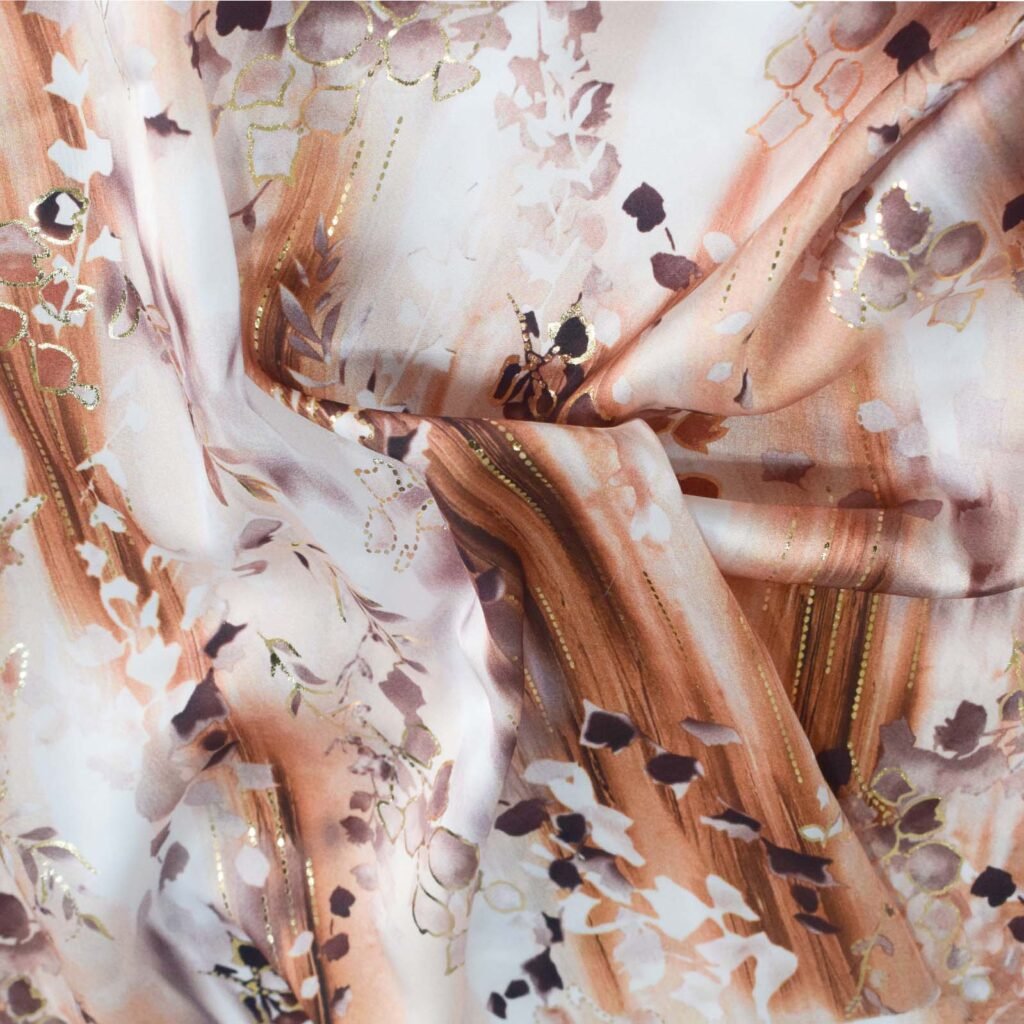
Choosing the right fabric for your design project can be a daunting task, especially when faced with the multitude of options available. Two of the most popular synthetic fabrics are polyester printed fabric and nylon. But how do you decide between them? Both offer unique benefits, but which one is the best fit for your specific needs? In this post, we’ll break down the key differences between these two fabrics, exploring their strengths, weaknesses, and ideal uses to help you make an informed choice. Whether you’re designing activewear, outdoor gear, or fashion pieces, understanding these fabrics will guide you in making the right decision for your next project.
Understanding Polyester Printed Fabric
Polyester printed fabric is made from polyethylene terephthalate (PET) fibers and is known for its vibrant, long-lasting prints. This fabric has gained popularity among designers for several reasons:
- Durability: Polyester is incredibly resistant to wrinkles, shrinking, and stretching, ensuring that your designs stay intact after multiple washes. It’s also quick-drying and moisture-wicking, making it perfect for activewear and outdoor gear.
- Eco-friendly Options: Traditional polyester has been criticized for its environmental impact, but many manufacturers now offer recycled polyester made from plastic bottles and waste materials, reducing the fabric’s carbon footprint.
- Print Quality: One of polyester’s biggest advantages is its ability to retain vibrant colors and intricate designs. This makes it ideal for fashion items, home decor, and printed apparel where color retention and visual appeal are essential.
In summary, polyester printed fabric excels in areas like durability, printability, and eco-friendliness, making it an excellent choice for many design applications.
Exploring Nylon Fabric
Nylon, introduced in the 1930s, is another synthetic fabric with unique properties. Here’s why you might choose nylon for your next project:
- Elasticity and Strength: Nylon is incredibly elastic and lightweight, offering great strength and durability for high-performance products like outdoor gear. Its tear resistance makes it a popular choice for items like hiking backpacks and tents.
- Moisture Absorption: While both nylon and polyester have moisture-wicking properties, nylon absorbs more water, making it feel more comfortable in hot, humid conditions. However, it takes longer to dry than polyester.
- Softness and Luxury: Nylon has a smoother, softer texture compared to polyester, making it ideal for delicate garments like lingerie or high-end sportswear.
Like polyester, nylon also has its environmental concerns, but bio-based nylons and recycled options are becoming more common, offering a sustainable alternative.
Nylon stands out for its elasticity, strength, and luxurious feel, which makes it a great choice for performance wear and more delicate applications.
Polyester vs. Nylon: A Head-to-Head Comparison
Let’s now compare these two fabrics directly across several important categories.
- Durability and Longevity:
- Polyester is known for resisting wrinkles, shrinking, and stretching, which helps your designs last longer.
- Nylon offers superior tear strength, making it ideal for high-stress applications like backpacks or tents.
- Printability:
- Polyester is a winner here. It holds vibrant colors and intricate patterns better than nylon, making it perfect for custom prints.
- Nylon can be printed on, but it doesn’t retain colors or prints as well as polyester, and it has a more limited print range.
- Comfort and Breathability:
- Nylon is often softer and more comfortable against the skin, especially in delicate garments like lingerie.
- Polyester, however, has made strides in comfort, with modern blends offering a cotton-like feel and better breathability.
- Moisture-Wicking:
- Both fabrics offer moisture-wicking properties, but polyester generally dries faster, while nylon may absorb and retain moisture longer.
- Environmental Impact:
- Both fabrics have environmental drawbacks, but recycled polyester is becoming more popular as a sustainable option, while bio-based nylons are emerging as an eco-friendly alternative.
When to Choose Polyester Printed Fabric or Nylon
To help you make the best decision, here are some practical examples of when each fabric might be the right choice:
- Outdoor Adventure Gear:
If you’re designing lightweight backpacks or tents, nylon is your best bet due to its strength and tear resistance. - Vibrant Swimwear:
Polyester printed fabric is ideal here, as it holds color well in chlorine and saltwater, making it perfect for swimsuits. - High-Performance Athletic Wear:
For workout gear, a combination of polyester and nylon might be the best approach. Polyester offers moisture management, while nylon adds strength and a soft touch. - Luxurious Lingerie:
Nylon takes the lead with its softness and elasticity, making it perfect for form-fitting garments like lingerie.
Conclusion
When it comes down to choosing between polyester printed fabric and nylon, the best choice depends on your project’s specific needs. Polyester printed fabric excels in durability, print retention, and eco-friendliness, making it ideal for items that require vibrant prints or moisture-wicking properties. On the other hand, nylon is known for its superior strength, elasticity, and luxurious feel, making it perfect for high-performance gear and delicate garments.
Both fabrics have their advantages, and many designers are now blending the two to create fabrics that offer the best of both worlds. Whether you’re designing outdoor gear, swimwear, or high-end sportswear, consider the fabric properties that matter most for your specific design needs.
